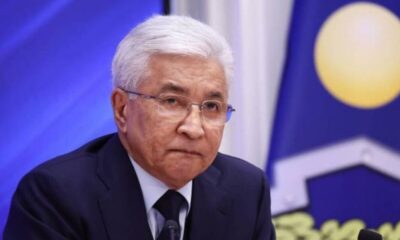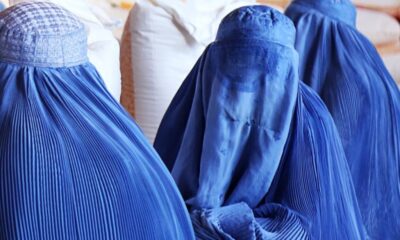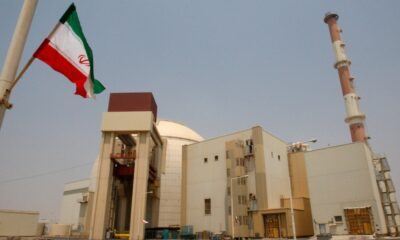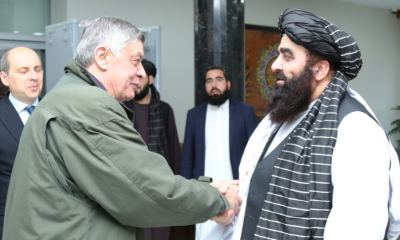Regional
Iranians vote in run-off presidential race amid widespread apathy
According to Reuters only 48% of voters participated in the 2021 election that brought Raisi to power, and turnout was 41% in a parliamentary election in March.
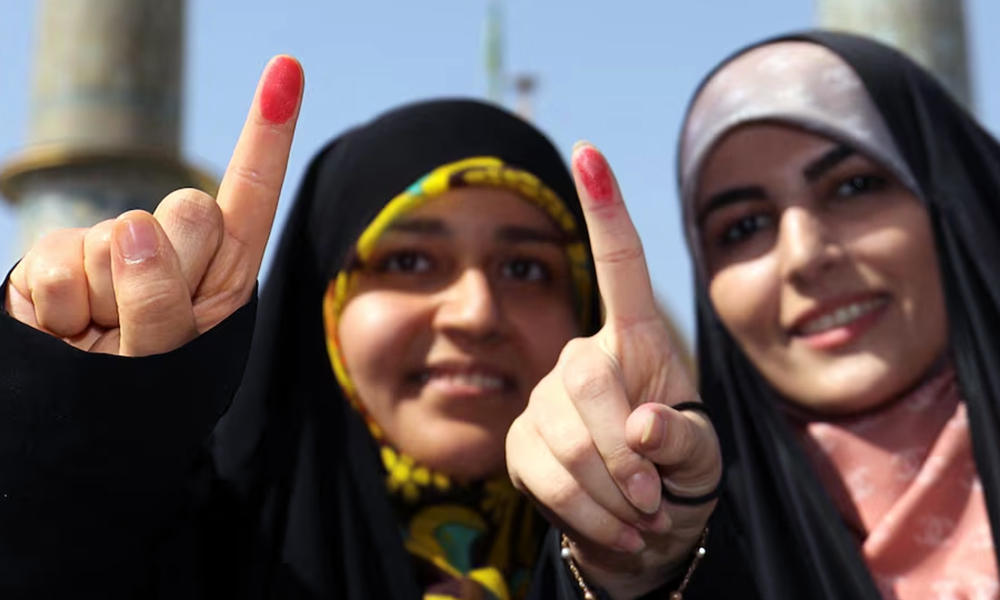
Polls opened in Iran on Friday for a run-off presidential election that will test the clerical rulers' popularity amid voter apathy at a time of regional tensions and a standoff with the West over Tehran's nuclear programme, Reuters reported.
State TV said polling stations opened their doors to voters at 8 a.m. local time (0430 GMT). Polling will end at 6 p.m. (1430 GMT), but are usually extended until as late as midnight. The final result will be announced on Saturday, although initial figures may come out sooner.
The run-off follows a June 28 ballot with historic low turnout, when over 60% of Iranian voters abstained from the snap election for a successor to Ebrahim Raisi, following his death in a helicopter crash. The low participation is seen by critics as a vote of no confidence in the Islamic Republic.
The vote is a tight race between low-key lawmaker Masoud Pezeshkian, the sole moderate in the original field of four candidates, and hardline former nuclear negotiator Saeed Jalili.
While the poll will have little impact on the Islamic Republic's policies, the president will be closely involved in selecting the successor to Ayatollah Ali Khamenei, Iran's 85-year-old supreme leader who calls all the shots on top state matters, read the report.
"I have heard that people's zeal and interest is higher than in the first round. May God make it this way as this will be gratifying news," Khamenei told state TV after casting his vote.
Khamenei acknowledged on Wednesday "a lower than expected turnout" in earlier voting, but said "it is wrong to assume those who abstained in the first round are opposed to the Islamic rule".
Voter turnout has plunged over the past four years, which critics say shows support for the system has eroded amid growing public discontent over economic hardship and curbs on political and social freedoms.
According to Reuters only 48% of voters participated in the 2021 election that brought Raisi to power, and turnout was 41% in a parliamentary election in March.
The election coincides with escalating regional tension due to the war between Israel and Iranian allies Hamas in Gaza and Hezbollah in Lebanon, as well as increased Western pressure on Iran over its fast-advancing nuclear programme.
"Voting gives power ...even if there are criticisms, people should vote as each vote is like a missile launch (against enemies)," Iran's Revolutionary Guards Aerospace Commander Amirali Hajizadeh told state media.
The next president is not expected to produce any major policy shift on Iran's nuclear programme or change in support for militia groups across the Middle East, but he runs the government day-to-day and can influence the tone of Iran's foreign and domestic policy.
The rivals are establishment men loyal to Iran's theocratic rule, but analysts said a win by anti-Westerner Jalili would signal a potentially even more antagonistic domestic and foreign policy.
A triumph by Pezeshkian might promote a pragmatic foreign policy, ease tensions over now-stalled negotiations with major powers to revive the nuclear pact, and improve prospects for social liberalisation and political pluralism.
However, many voters are sceptical about Pezeshkian's ability to fulfil his campaign promises as the former health minister has publicly stated that he had no intention of confronting the powerful security hawks and clerical rulers.
Many Iranians still have painful memories of the handling of nationwide unrest sparked by the death in custody of a young Iranian-Kurdish woman Mahsa Amini in 2022, which was quelled by a violent state crackdown involving mass detentions and even executions.
"I will not vote. This is a big NO to the Islamic Republic because of Mahsa (Amini). I want a free country, I want a free life," said university student Sepideh, 19, in Tehran.
The hashtag #ElectionCircus has been widely posted on social media platform X since last week, with some activists at home and abroad calling for an election boycott, arguing that a high turnout would legitimise the Islamic Republic.
Both candidates have vowed to revive the flagging economy, beset by mismanagement, state corruption and sanctions reimposed since 2018 after the U.S. ditched Tehran's 2015 nuclear pact with six world powers, Reuters reported.
Related Stories:
Iran’s presidential election dominated by Khamenei loyalists
Regional
Iran to hold nuclear talks with three European powers in Geneva on Friday
Iranian foreign ministry spokesperson Esmaeil Baghaei later said the deputy foreign ministers of Iran, France, Germany and Britain would take part in the talks, which he said would cover regional issues as well as the nuclear dossier.a
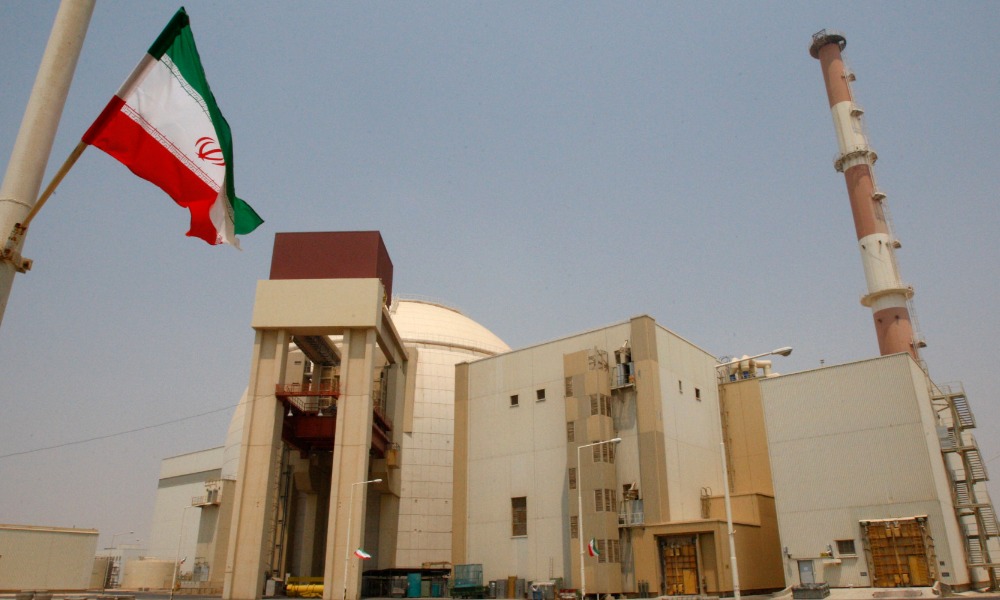
Iran will hold talks about its disputed nuclear programme with three European powers on Nov. 29 , the Iranian foreign ministry said on Sunday, days after the U.N. atomic watchdog passed a resolution against Tehran.
Iran reacted to the resolution - proposed by Britain, France, Germany and the United States - with what government officials called various measures such as activating numerous new and advanced centrifuges, machines that enrich uranium.
Japan's Kyodo news agency, which first reported that the meeting would take place on Friday in Geneva, said Iranian President Masoud Pezeshkian's government was seeking a solution to the nuclear impasse ahead of the inauguration in January of U.S. President-elect Donald Trump.
A senior Iranian official confirmed that the meeting would go ahead next Friday, adding: "Tehran has always believed that the nuclear issue should be resolved through diplomacy. Iran has never left the talks."
Iranian foreign ministry spokesperson Esmaeil Baghaei later said the deputy foreign ministers of Iran, France, Germany and Britain would take part in the talks, which he said would cover regional issues as well as the nuclear dossier.a
Baghaei did not say where the talks would take place. A spokesperson for the Swiss foreign ministry directed questions to the countries named in the Kyodo report.
"Views will be exchanged ... on a range of regional discussions and subjects including the issues of Palestine, Lebanon and also the nuclear subject", Baghaei said.
In 2018, the then-Trump administration exited Iran's 2015 nuclear pact with six major powers and reimposed harsh sanctions on Iran, prompting Tehran to violate the pact's nuclear limits, with moves such as rebuilding stockpiles of enriched uranium, refining it to higher fissile purity and installing advanced centrifuges to speed up output.
Indirect talks between President Joe Biden's administration and Tehran to try to revive the pact have failed, but Trump said during his election campaign in September: "We have to make a deal, because the consequences are impossible. We have to make a deal".
Regional
At least 18 dead in retaliatory sectarian attacks in Pakistan
The latest killings in a tribal district began on Friday night, when armed men attacked a village in the district, said the chief secretary of the Khyber Pakhtunkhwa province.

At least 18 people were killed and 30 injured in further sectarian violence in northwestern Pakistan, officials said on Saturday, as tensions remained high following attacks on transport convoys that killed dozens of civilians this week, Reuters reported.
The latest killings in a tribal district began on Friday night, when armed men attacked a village in the district, said the chief secretary of the Khyber Pakhtunkhwa province, Nadeem Aslam Chaudhry.
"They set on fire petrol stations and damaged properties as part of revenge," he told Reuters by phone. He said he and top police officials would be visiting the area and engage tribal elders on both sides to restore order.
The toll since Thursday is 58 dead, read the report.
AFP reported on Saturday that 32 people were killed in the latest violence, citing an unnamed official.
On Thursday unidentified gunmen opened fire on passenger vehicles, killing over 40 in the Kurrram district, where armed Shia and Sunni Muslims have engaged in tribal and sectarian rivalry for decades over a land dispute near the Afghanistan border.
Most of the dead were Shiites, officials said, sparking retaliatory attacks by armed groups, with markets and schools remaining shut in a curfew-like situation, Reuters reported.
A police official requesting anonymity told Reuters that the death toll from the fresh violence could have been higher had residents of the village that was attacked not already evacuated their homes in anticipation of more violence.
He said the residents of Bagan village, a mostly Sunni area, had already left their homes and shifted to safe places in Lower Kurram.
Regional
Gunmen attack Pakistan passenger vehicles, killing at least 38 people

Gunmen opened fire on passenger vehicles in a tribal area in northwestern Pakistan on Thursday, killing at least 38 people and wounding 29, the chief secretary of the Khyber Pakhtunkhwa province, Nadeem Aslam Chaudhry, said.
Reuters reported that among the fatalities in the attack, which occurred in the Kurram tribal district, were a woman and a child, Chaudhry said, adding: “It’s a major tragedy and death toll is likely to rise."
No group claimed responsibility for the incident.
"There were two convoys of passenger vehicles, one carrying passengers from Peshawar to Parachinar and another from Parachinar to Peshawar, when armed men opened fire on them,” a local resident of Parachinar, Ziarat Hussain told Reuters by telephone, adding that his relatives were travelling from Peshawar in the convoy.
President Asif Ali Zardari, in a statement, strongly condemned the attack on passenger vehicles.
-

 Latest News3 days ago
Latest News3 days agoU.S. House approves bill on evacuation of Afghan allies
-

 Sport4 days ago
Sport4 days agoAriana News to broadcast IPL auction live and exclusively in Afghanistan
-
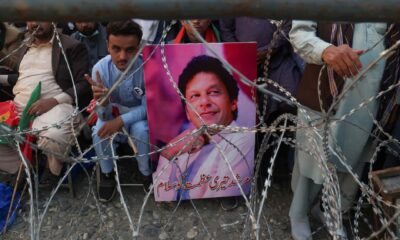
 Regional4 days ago
Regional4 days agoPakistan’s ex-PM Imran Khan gets bail in state gifts case, his party says
-
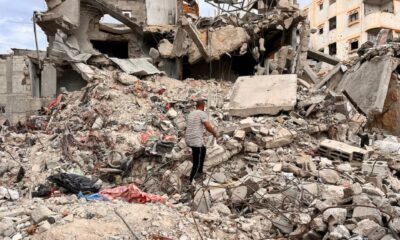
 World4 days ago
World4 days agoUS vetoes UN Security Council resolution on Gaza ceasefire
-

 Latest News4 days ago
Latest News4 days agoUN moves to unlock stuck climate financing for Afghanistan
-
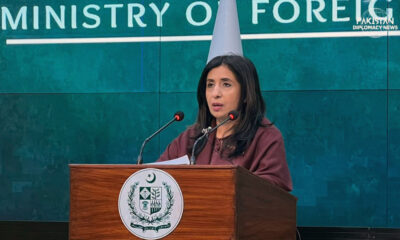
 Latest News4 days ago
Latest News4 days agoPakistan rejects suggestion of appointing a new special envoy for Afghanistan
-
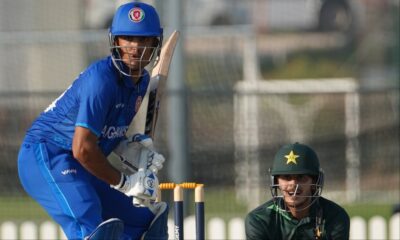
 Sport5 days ago
Sport5 days agoPakistan trumps Afghanistan by only 13 runs in U19 Tri-Series One Day match
-
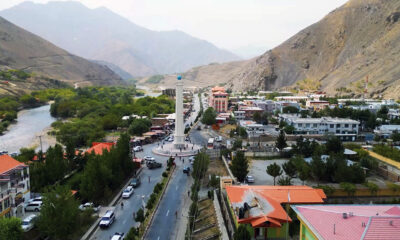
 Latest News4 days ago
Latest News4 days agoPanjshir to get modern hotel and other facilities amid growing tourism sector




